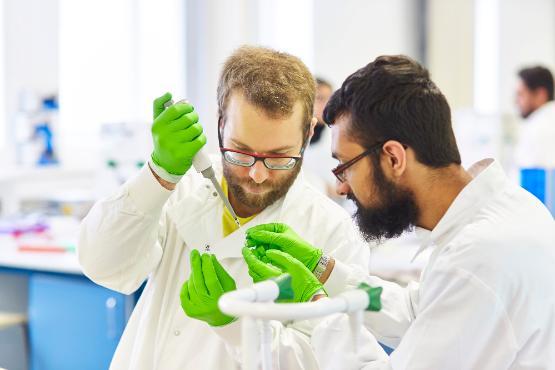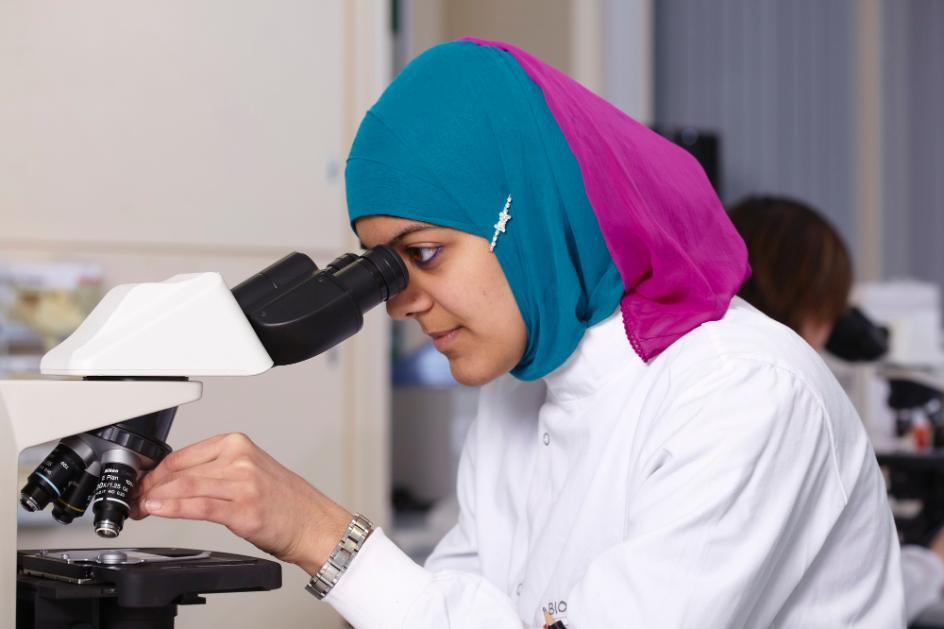
PhD, Institute of Cancer Therapeutics
The University of Bradford has a leading reputation in dementia care research and the research and development of new cancer treatments. Investment and development in these two areas continue to be a priority for the University and for our society.
Support towards these two areas is not only allowing our students to develop their knowledge and become the pioneering researchers of tomorrow but it is also life-changing for the recipients of the research carried out.
Bradford is one of the few research centres globally that has the facilities and expertise to progress anti-cancer medicines from concept to clinic.
In recent years your donations have enabled our scientists to progress three candidate cancer medicines into clinical trials - the £1 million that our alumni and friends raised for the Bradford Cancer Crocus Appeal, pioneered the ‘crocus flower smart bomb’ treatment. This breakthrough drug is currently in clinical trials and has already demonstrated the potential to destroy tumors without harming healthy tissue.
Our world-renowned cancer researchers are now poised to develop a new type of cancer drug, one that can be personalised according to a person’s specific genetic profile. This class of drug will be able to be tailored to complement an individual’s own physiology - maximising the treatment results whilst minimising the side effects experienced by many cancer patients.
Once developed, our ground-breaking new drugs will give hope and choice for people living with prostate, lung, breast, bladder, and colon cancers.
It has now been estimated that one in two people will get cancer in their lifetime. Your donations will enable our talented team at Bradford to purchase vital research equipment, nurture the next generation of cancer researchers, and accelerate the development of revolutionary personalised cancer treatments.



Bradford is recognised throughout the world for its work in dementia and end of life care – in 2016 our dementia team was awarded the coveted Queen’s Anniversary Prize
Our work is already having an impact: for example, our care programme for dementia patients has been proven to reduce falls and agitation, and now forms a key part of National Institute for Health & Care Excellence (NICE) guidelines. However, the health costs of dementia in the UK are already more than those of cancer, heart disease, and stroke combined.
Bradford is tackling this through a Doctoral Training Centre within the Centre for Applied Dementia Studies. The Centre provides Ph.D. students with the training, mentoring, and support they need to develop new ideas and ways of integrating new technology into the lives of those living with dementia.
We need funding for our Ph.D. students to continue the work of the Doctoral Training Centre and create the dementia care researchers of tomorrow.

PhD, Institute of Cancer Therapeutics

Lecturer, Institute of Cancer Therapeutics

Post Doctoral Research Assistant, Institute of Cancer Therapeutics